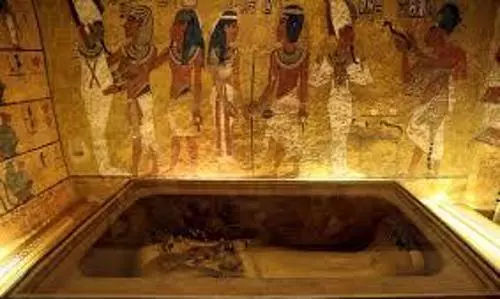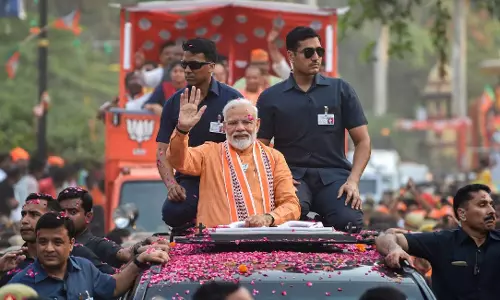
Anti-Muslim narrative in 'Animal': Examining Muslim villain's representation
text_fieldsThe much-anticipated Bollywood film ‘Animal’ has been thrust into the spotlight for its alleged promotion of Islamophobia and alignment with right-wing ideologies. In a recent opinion piece penned by Faseeh Ahmad EK in The News Minute, the film has been dissected for its partisan political overtones. Faseeh Ahmad EK is a doctoral candidate at the Department of Communication, University of Hyderabad.
The film, directed by Sandeep Reddy Vanga and starring Ranbir Kapoor, has garnered attention not only for its hyper-masculine portrayal but also for its subtle yet impactful narrative choices.
The author delves into the film's portrayal of a 'Muslim villain' archetype, emphasizing the lack of discourse around this controversial element in most reviews. Despite low ratings and criticism for its toxic masculinity, ‘Animal’ continues to draw packed audiences, raising questions about the societal acceptance of the demonization of Muslims on screen.
The film ‘Animal’ has come under scrutiny for its portrayal of religious identities, echoing the controversial ideologies of Hindutva. According to the author, Savarkar, a proponent of Hindutva, views Sikhs as integral to the Hindu identity due to their cultural and ancestral ties to India. Christians, on the other hand, are given a concession, deemed amenable to Hindutva as they are perceived as less fanatic and honest citizens.
The film illustrates this exchangeability of identities through the protagonist, Ranvijay, effortlessly participating in Hindu rituals like drinking gaumutra while struggling and disrespecting Christian practices in a church.
In stark contrast, the Muslim identity in the film is depicted as a partition and departure, achievable only through conversion, exemplified by the character Abrar's father. The recurring theme of 'returning Muslims' reflects the political discourse around perceived threats since the 1947 partition.
The Citizenship (Amendment) Act (CAA) of 2019 is cited as the government's solution to the 'Muslim problem,' defining the expected 'returnee' as Hindu and portraying Muslims as supposed 'deportees.' The film draws parallels between a scene where Balbir Singh rejects Abrar's father's demand for a share, echoing Sardar Vallabhbhai Patel's stance on a separate electorate for Muslims during the Constituent Assembly.
The subsequent generation of 'returning Muslims' is depicted as avenging, aligning with the BJP more than the Congress. Ranvijay's drastic solution in the film, slitting Abrar's throat to prevent his reaching his father, mirrors the CAA's exclusionary stance towards Muslims. The CAA is described as inclusive to everyone else in Hindu India, embracing various identities except Muslims.
This shift is likened to the old slogan 'Hindu Muslim Sikh Isai, Aapas Me Sab Bhai Bhai,' with the exclusion of Muslims, highlighting the broader embrace of identities under the umbrella of Hindutva in the film.
The aesthetics of Islamophobia in ‘Animal’ are analyzed, with the author noting the film's subtle but powerful visual choices, drawing comparisons to Nazi Germany's propaganda. The portrayal of a violent, polygamous Muslim character is juxtaposed against the film's sexualisation of a Muslim woman, contributing to the alleged Islamophobic undertones.
The necessity of a 'Muslim villain' in the film is explored in the context of Bollywood's historical dominance by Muslim actors, especially the 'Khans.' The article suggests that the right-wing agenda in India has long sought a Hindu superstar to counter the Muslim identity of Bollywood's leading actors.
Drawing parallels to Hrithik Roshan's early career, the article suggests that ‘Animal’ attempts to create a new superstar for Bollywood by defeating the Muslim villains within the narrative.
In conclusion, the author raises concern about the lack of attention to the film's Islamophobic elements in mainstream discourse, urging readers to critically examine the broader implications of such narratives.
The article encourages a deeper analysis of Bollywood's role in perpetuating stereotypes and aligning with political agendas, calling for a more nuanced understanding of the impact of cinema on societal perceptions.
As "Animal" continues to dominate the box office, the debate sparked by Faseeh Ahmad EK's opinion piece adds another layer to the ongoing conversation about the responsibilities of filmmakers and the potential societal impact of their narratives.
























